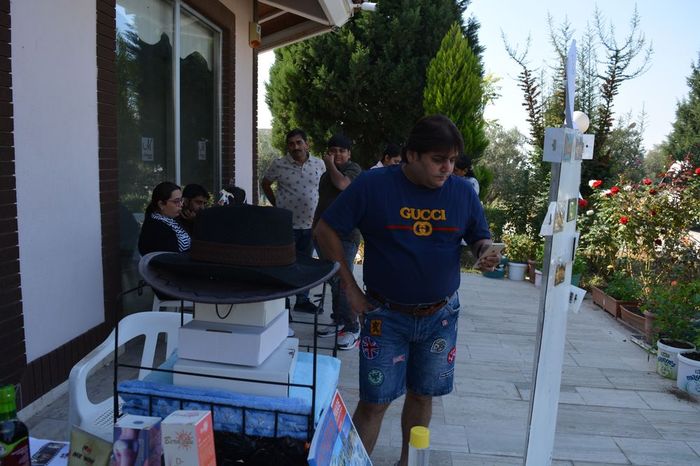By this time he was an old man on the verge of the grave, and so illiterate that he could neither read nor write: which never before could have been said of a Roman ruler. It was the custom for an Emperor to sign his edicts with his own hand, but he neither made decrees nor was able to understand the business of state at all.
The man on whom it befell to assist him as Quaestor was named Proclus; and he managed everything to suit himself. But so that he might have some evidence of the Emperor’s hand, he invented the following device for his clerks to construct.
Emperor’s fingers
Cutting out of a block of wood the shapes of the four letters required to make the Latin word, they dipped a pen into the ink used by emperors for their signatures, and put it in the Emperor’s fingers. Laying the block of wood I have described on the paper to be signed, they guided the Emperor’s hand so that his pen outlined the four letters, following all the curves of the stencil: and thus they withdrew with the Fiat of the Emperor. This is how the Romans were ruled under Justin.
His wife was named Lupicina: a slave and a barbarian, she was bought to be his concubine. With Justin, as the sun of his life was about to set, she ascended the throne.
Now Justin was able to do his subjects neither harm nor good. For he was simple, unable to carry on a conversation or make a speech, and utterly bucolic.
His nephew Justinian, while still a youth, was the virtual ruler-, and the of more and worse calamities to the Romans than any one man in all their previous history that has come down to us.- For he had no scruples; against murder or the seizing of other persons property; and it was nothing to him to make away with myriads of men, even when they gave him no cause. He had no care for preserving established customs, but was always eager for new experiments, and, in short, was the greatest corrupter of all noble traditions.
Though the plague, described in my former books, attacked the whole world, no fewer men escaped than perished of it; for some never were taken by the disease, and others recovered after it had smitten them. But this man, not one of all the Romans could escape; but as if he were a second pestilence sent from heaven, he fell on the nation and left no man quite untouched.
Read More about The Secret History part 50








